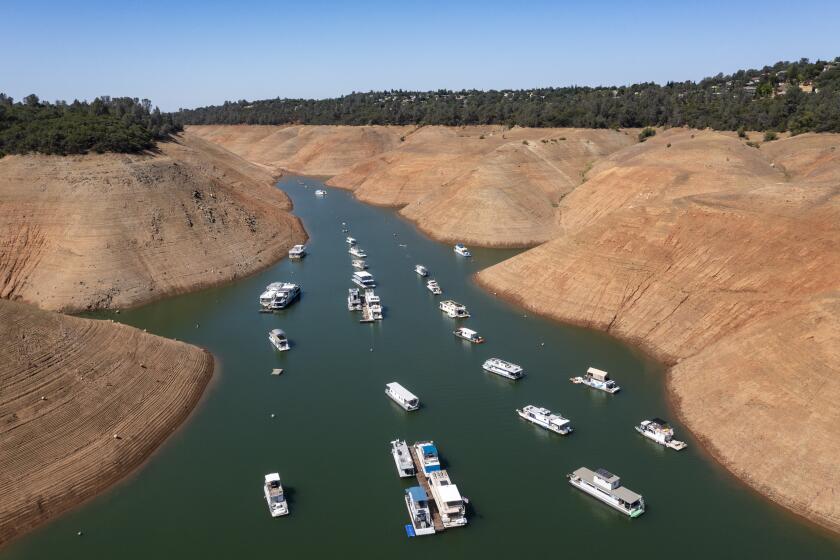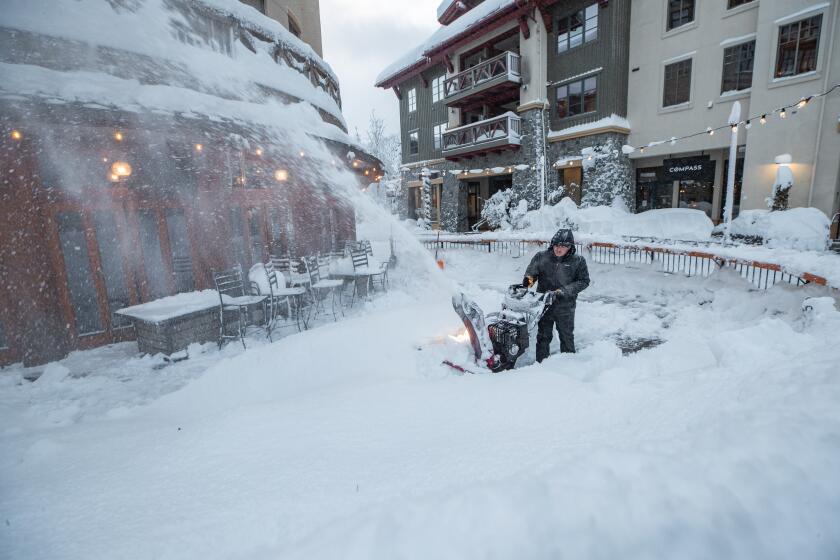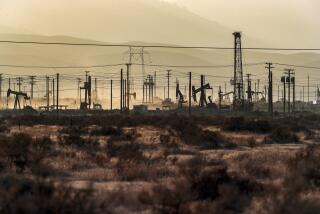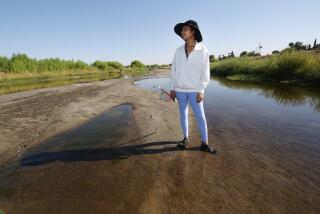In Bakersfield, a lawsuit aims to turn a dry riverbed into a flowing river
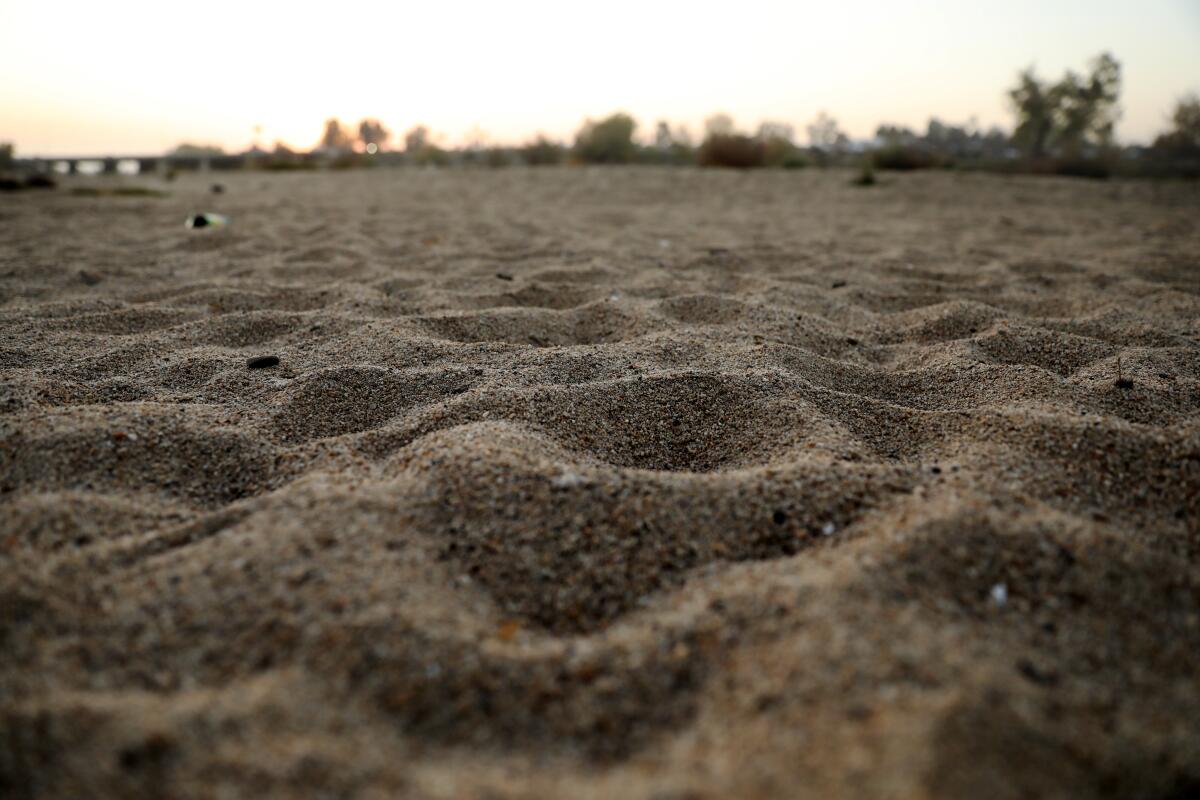
- Share via
Conservation groups are going to court to try to bring back a flowing river in Bakersfield, where for years so much water has been diverted in canals to supply farms that the Kern River is usually reduced to a dry, sandy riverbed.
Six environmental groups sued the city of Bakersfield, saying that continuing to allow diversions of water upstream from the city harms the environment and the community.
“The river is just in a state of total collapse,” said Kelly Damian, a spokesperson for the group Bring Back the Kern. “That’s readily apparent to anybody who goes and just looks at the river. It’s dry. It’s dead. It’s derelict. It’s a blight on the community instead of what it should be.”
Damian, a high school teacher, often runs on a bike path beside the parched riverbed, where she sees withered trees that are dead or dying from the lack of water.
“It’s very out of balance,” Damian said. “We just really want to see water flowing through the river.”
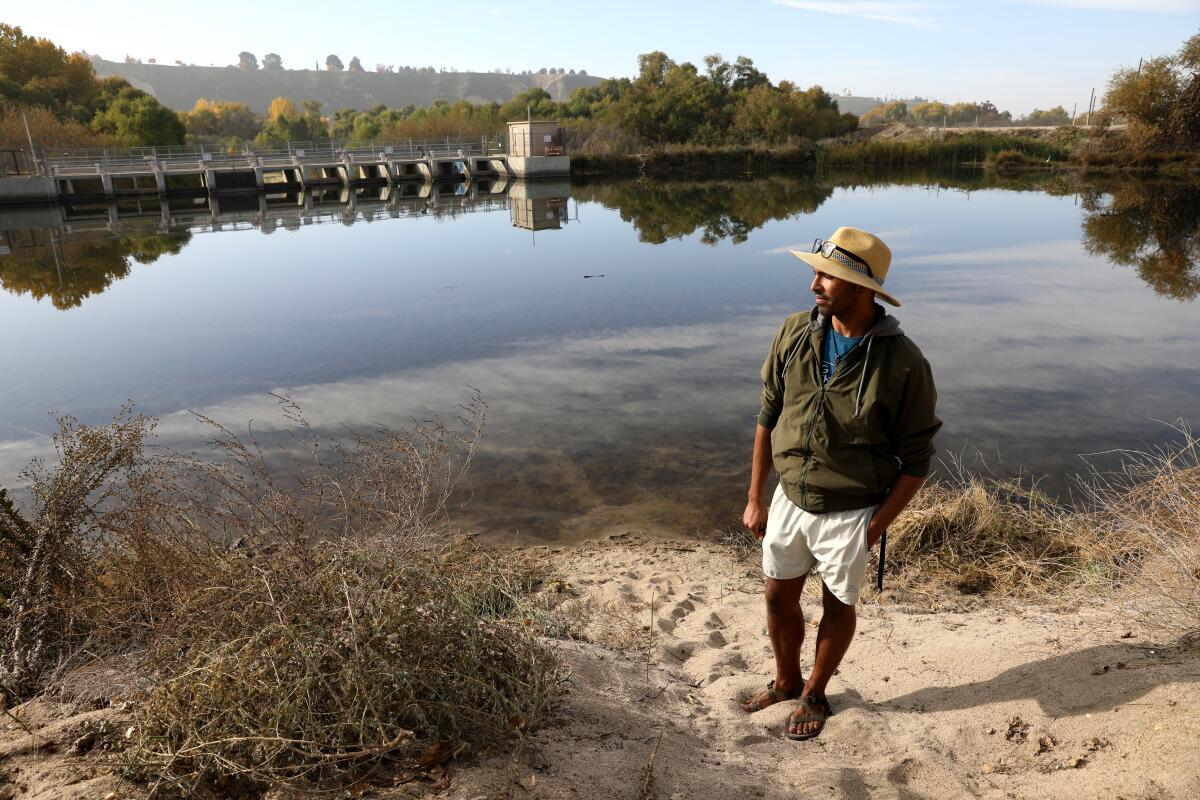
Plaintiffs argue that allowing water diversions to dry up the river violates California’s public trust doctrine, the principle that certain natural resources must be preserved for the public.
If activists prevail in the case, it could help restore a flowing river in downtown Bakersfield and set a precedent for additional protections for rivers and streams in other parts of California that have been heavily tapped and ravaged by years of drought and the effects of climate change.
“There are a whole lot of rivers in California that are diverted and dammed and are basically destroyed,” said Adam Keats, a lawyer representing the groups. “If we can bring the Kern River back to life through the center of the city of Bakersfield, we can do this anywhere.”
The Kern River cascades from the Sierra Nevada and emerges from a steep-sided canyon. Decades ago, the Kern flowed all the way through Bakersfield. But so much water is diverted in canals to supply farmlands that the river now seldom reaches beyond the northeast side of the city.
Downstream from diversion dams, the last of the river dries up and disappears.
Instead, the water flows in canals to farms that produce almonds, pistachios, grapes, oranges and other crops.
‘We are in a time of crisis’: Experts launch effort to update California water laws in the face of climate change and historic injustices
Last year, activists with Bring Back the Kern and other groups sought to secure water for the river as the State Water Resources Control Board considered a longstanding dispute over water rights. But a state-appointed hearing officer has declined to consider the public trust doctrine at this time.
The environment groups are now instead targeting the city’s diversions from the river. They argue in the lawsuit, which they filed Nov. 30 in Kern County Superior Court, that the city has “created a public nuisance” by diverting water and drying up the river “without any analysis of the impacts on public trust uses and resources.”
The environmental groups — which also include the Center for Biological Diversity, Kern River Parkway Foundation, Water Audit California, the Sierra Club and Kern Audubon Society — are urging the court to order the city to release sufficient water to “avoid irreparable harm” and “provide flows for fish passage and habitat.”
The groups want the city to start diverting water from a location farther downstream, on the other side of town, thereby allowing the river to flow through the community.
“All they have to do is divert the water down closer to the valley floor and not divert it up above the city,” Keats said. “That’s a very feasible change that the city can do.”
The Kern River has long been a dry riverbed in downtown Bakersfield. A group of residents is pushing to bring back a flowing river.
The lawsuit, while directed at the city, also lists agricultural irrigation districts that receive water as parties with interests in the case, among them Kern Delta Water Storage District, North Kern Water Storage District and Rosedale-Rio Bravo Water Storage District.
The city operates its own dams that divert water from the river, and has contracts to supply water to agricultural water districts.
Keats said, however, that these contracts “don’t trump the public trust doctrine” and that the city is violating its obligations by allowing diversions that dewater the river.
Colin Pearce, a lawyer representing Bakersfield, said the city will not comment on the case at this time. Representatives of agricultural water districts either declined to speak about the case or didn’t reply to emails.
The lawsuit summarizes the history of taking water from the Kern River, which historically filled two shallow lakes and vast wetlands in the southern San Joaquin Valley. It explains how an 1888 agreement between wealthy land barons Henry Miller and James Haggin divided shares to the river, and how that agreement has been expanded and modified over the years.
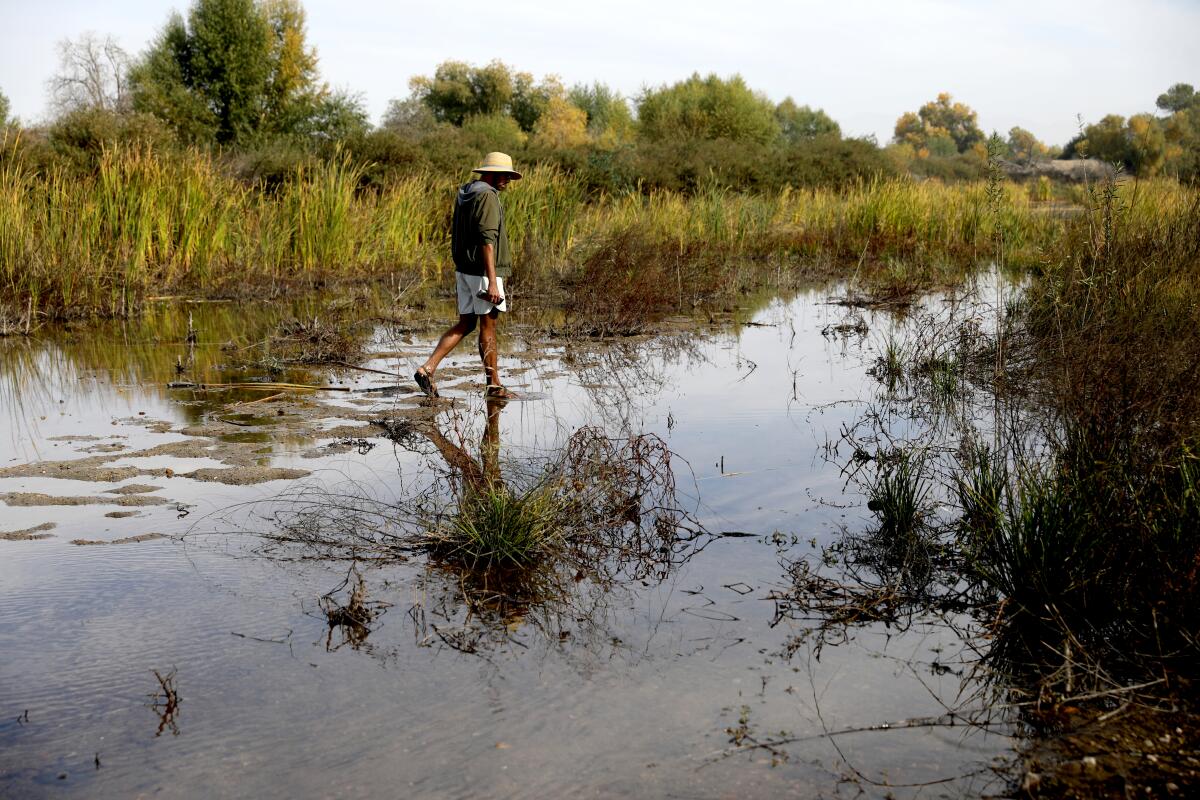
Over the past century, as more water was taken from the river for expanding farms, Buena Vista Lake and Kern Lake dried up and were transformed into farmland. To the north, Tulare Lake — which was once the largest freshwater lake west of the Mississippi — also dried up in the 1930s as the valley’s rivers were heavily used to serve agriculture.
Since 1976, the city has owned multiple weirs along the Kern River and has been in charge of administering water diversions. Some water is used in the city, but much of it goes to supply agriculture.
“We can put a river back through Bakersfield, and we can still let these businesses still grow crops and still make money,” Keats said. “There’s no reason why it’s either-or.”
Other similar court cases are underway elsewhere in California. Keats is working on two cases involving public trust issues, one relating to the Merced River and the other to the Santa Clara River.
“I think there’s something very important about saying, as a community and as a society, that we’re not going to sacrifice our rivers that go through our communities,” Keats said.
Despite some improvements in snowpack and soil moisture, experts warn that California still has a long way to go to truly reverse its historic dry streak.
Damian and other residents say having water flowing through Bakersfield would restore the river’s ecosystem and nourish a green corridor in the heart of the city, enabling people to regularly wade, kayak and picnic on the banks — as they did decades ago.
Damian, who has lived in Bakersfield for 16 years, said she feels deeply concerned seeing the river completely dry, its desiccated ecosystem deteriorating.
“People in this town deserve a river,” Damian said. “I think there is a sense of dignity that can be restored when we restore the river, because when they dried that river up, they really cut the heart out of the town.”
She said the agriculture industry can continue having water, but changing the point where the water is taken would vastly improve the river and life in the city.
Damian said using up the entire river has created a “massive dead zone” and influenced how people see Bakersfield.
“I think we’ve been extracted from long enough,” Damian said. “And I think it’s time to give back, and to do some restoration and to do some healing in this place.”
